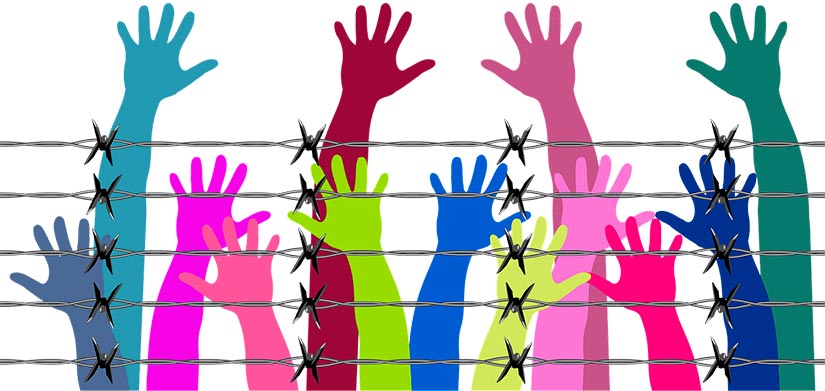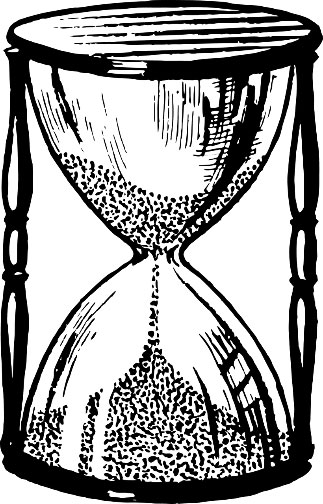Give your opinion
Auschwitz: the reasons for barbarism

Sonia Pérez, student of Degree in History of the Holocaust, invites us to reflect on the importance of respect and the living memory of the Holocaust. School of Humanities and Social SciencesThe Holocaust, invites us to reflect on the importance of respect and living remembrance of the Holocaust.

"We must liberate the German nation from Poles, Russians, Jews and Gypsies".
Otto Thierack, Minister of Justice of the Third Reich.
Today, to describe the Nazi movement we use its own doctrine summarised as: anti-Semitism, Aryan superiority, the greatness of the German state and expansionism. We see these four characteristics reflected in the concentration camps that have become a long-lived reminder of the Holocaust.
Auschwitz is one of those places where you can hear, if you pay attention, how the walls of the barracks speak or the weeping of the walls that witnessed the violent death of an innocent minority. In other places, however, the silence that is conveyed is such that it invites us to deep personal reflection.
This terrifying place was built in the late 1940s on the outskirts of Oświęcim, a Polish city annexed by the Nazis to the Third Reich, which after its incorporation into the Nazi empire was renamed Auschwitz, like the concentration camp. It was originally intended to house the great mass of Poles arrested by the German police, but later became known as the largest centre for the mass extermination of Jews.
The historian Ferrán Gallego refers in his writings to how the population has been normalising, forgetting or even ignoring this historical period. In his studies, he presents the reasons why it happened, why people try to discard it and why this period should not be forgotten.
Firstly, it details the idea that the past, on occasions, sets us the trap of being the past at all, and this leads irremediably to oblivion. This is the first way to corner this genocide in numbers, without taking into account that, behind that number, there is a person who was stripped of their life project , their future, their family, etc. Therefore, to do justice to the victims, we should remember them individually, giving them the importance they deserve.
Another way of relegating this historical fact is through the non-existent explanation of the events, considering Auschwitz as a "meaningless moral parenthesis of history, a product of silence". Of the silence of the victims, justified by anguish, of the people as accomplices who collaborated with the murderer out of fear or self-protection and because of the narcissism of those responsible, who thought they were doing the right thing and exculpated themselves.
Gallego points out how, in trying to speak of Auschwitz objectively, we are heading into the territory of morality. He considers that it was "a humbling cure for a haughty, self-confident, shameless culture". It was the seed of modernity, which brought to the surface the concept of the other, of the different, of dissatisfaction with the world, uncertainty about the future, fear of ourselves and of our neighbours.
The existing fear and demoralisation in Germany caused by the Treaty of Versailles was sanitised by Adolf Hitler, who endowed the people with a superior Aryan identity that he believed should remain pure and clean, reifying and belittling the people. As time went on, the killings that were carried out did not only focus on Jewish people or people of Jewish origin.The intrinsic purpose of the extermination was not really to cleanse Germany, but to achieve cohesion among the people through the complicity of silence, not the end justifying the means, but only the means to an end.
At final, Auschwitz demonstrated the lack of values, the lack of humanity, and the arrogance of a people in pain, manipulated and with a thirst for revenge.

Extrapolating the facts of the Holocaust to our daily reality, I think it is important to stress that, despite the fact that the majority of the population defends the position that remembrance is our salvation, there is a large community that does not take advantage of the opportunity to achieve a great echo in society. These are the so-called influencerswho have great credibility on social networks and can influence opinion, especially among pre-adolescents and teenagers.
Although their main task is not to educate their followers, it is true that by taking advantage of their "mastery" they could act didactically and try to dissuade their sympathisers. For example, by emphasising that the Auschwitz concentration camp is not a purely touristy place to be photographed, but that it is a place where a massacre was committed and must be respected, just as monuments commemorating the death of thousands of people are not constructions to beautify a city.
Today we live in a society in which people are forced, to a certain extent, to aspire to perfection. We feel insecure in many respects, we see others as opponents whom we do not respect, we are individualistic and narcissistic, there is a certain dehumanisation and objectification in social networks... Is this not a picture of circumstances akin to the beginning of the totalitarian episode of the last century? How can we stop this situation if it spreads?
It is clear that the remedies are, fundamentally, education, the teaching of values based on equality and empathy, bringing history closer to the population... but, unfortunately, it seems that at present this is neither what is most in vogue nor what has the greatest impact on society.
If you liked the article, you might be interested in one of our Degrees!









